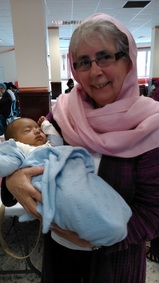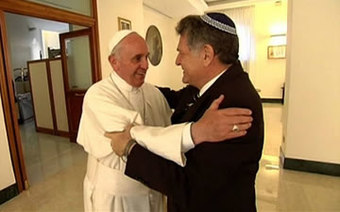
The Gaelic for Smith is Gown or McGowan and originally that would have been my family name but at a particual time in history the Irish were forced, advised to anglify their name and so while agreeing to do so showed a little bit of rebellion by spelling it with a 'y'. It got me thinking about names and what changing people's names means. Religions are very good at this. Often when peope convert to a religion as an adult they are given a different name - a Buddhist name. an Islamic name or whatever. Christian missionaries did this to indigenous people thinking that they should accept a Christian name at baptism. When I entered religious life and became a novice we were given a different name. This was to show that we had left our old life behind, dying to self so to speak, and now living in a new order. This was changed after the Second Vatican Council when it was recognised that our initial and basic commitment stemmed from our baptism and why not use and appreciate the name given at that event. Living in a convent was not really living in a new order but living out that commitment in a partical way. I'm glad I went back to my own name as I like it and I like it's meaning which is ' God is my satisfaction' or 'beautiful Isis'.
Changing someone's name could be seen as an attempt to show they belong to the community they have just joined - an act of inclusion. But at the same time it separates the person from their former community and can show a lack of respect for their former way of life. The anglicisation of Irish names has been seen as an example of English domination though it's also possible in a society where one feels marginalised and disadvantaged that anglicising one's name might have brought about some economic advantage and not marked one out as different.
Years ago CS Song, a Taiwanese theologian wrote a book called ' Tell Us Our Names' which I've never forgotten though it's long out of print. He talked about how Christian missionaries changed names of indigenous people - names that had significance and sacred meaning to names of Christian saints that were meaningless and unrelated to their context and culture. He suggested that rather than use their name-giving power missionaries should have exercised a name-knowing power. He underlined the importance of knowing people's names, pronouncing them correctly and understanding their deep meaning. There's a lesson here not just for missionaries but also for interfaith practitioners. To understand another's name is to respect their tradition, to be aware of their history, to refuse to suggest that your names, culture, way of life is more important or superior to theirs. It is to show that life is not about domination but about relationship - a meeting of minds and hearts. It's important and essential to allow others to name themselves, their beliefs and their culture. It's important to take the trouble to understand and appreciate these on their terms and not ours. Then we might come to know them so well that we realise that their name is in fact my name and my name is theirs.




 RSS Feed
RSS Feed
